We need the tonic of wildness—it’s a call to reconnect with the untamed beauty of nature and rediscover its restorative power. From psychological well-being to fostering resilience and creativity, immersing ourselves in natural environments offers a wealth of benefits.
In this exploration, we’ll delve into the essence of wildness and its profound impact on our lives. We’ll uncover practical ways to incorporate nature into our daily routines, even in urban settings, and discuss the importance of embracing the unknown and stepping outside our comfort zones.
The Essence of Wildness
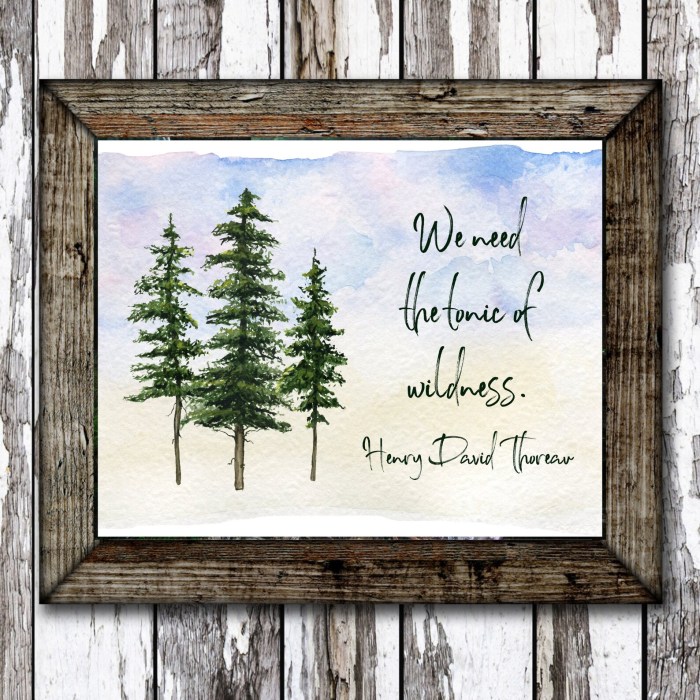
Wildness, in its untamed and uncharted essence, holds an intrinsic allure that resonates deep within the human psyche. It is a realm where nature reigns supreme, free from the constraints of civilization, where raw beauty and untamed spirits intertwine.
In the digital age, we crave the tonic of wildness, a respite from our hyperconnected lives. While our vocabulary may be brimming with words that evoke this yearning, like “hypersensitive” and “hypochondriac” ( words with the prefix hypo ), it’s the raw, untamed wilderness that truly nourishes our souls, reminding us of the boundless wonder that lies just beyond the confines of our screens.
Immersing ourselves in natural environments, whether it be a sprawling forest, a secluded beach, or a majestic mountain range, has profound benefits for both our psychological and physiological well-being. Wildness offers a respite from the relentless demands of modern life, providing a sanctuary where we can reconnect with our primal instincts and experience a sense of awe and wonder.
Psychological Benefits
- Stress Reduction:Studies have shown that spending time in nature can significantly reduce stress levels, lower blood pressure, and improve mood.
- Improved Mental Health:Exposure to wild environments has been linked to reduced symptoms of depression, anxiety, and improved overall mental well-being.
- Enhanced Creativity and Problem-Solving:The natural world stimulates our senses and encourages us to think more creatively and find innovative solutions to problems.
- Increased Self-Awareness:Spending time in solitude amidst nature allows us to reflect on our thoughts and emotions, leading to greater self-awareness and a deeper understanding of our place in the world.
Physiological Benefits, We need the tonic of wildness
- Boosted Immune System:Research suggests that exposure to certain natural compounds found in plants and soil can strengthen our immune system.
- Improved Physical Health:Exercise in natural environments has been shown to have greater benefits for cardiovascular health and overall fitness compared to indoor workouts.
- Reduced Inflammation:Spending time in nature has been linked to reduced levels of inflammation throughout the body, which can improve overall health and well-being.
- Enhanced Sleep Quality:The calming effects of nature can promote better sleep, reducing insomnia and improving overall sleep quality.
Reconnecting with the Wild: We Need The Tonic Of Wildness
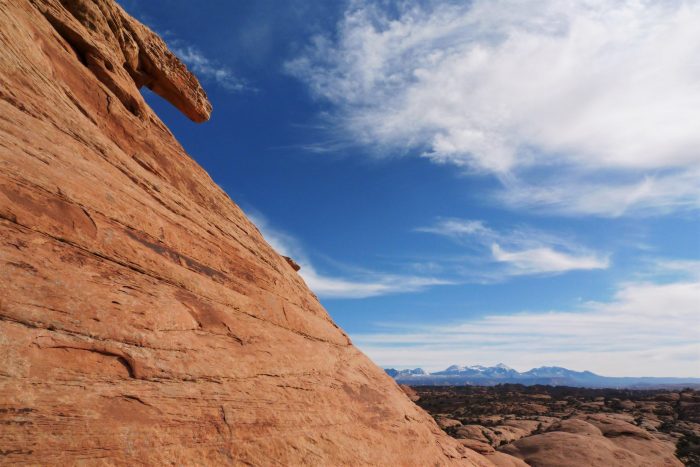
In today’s fast-paced, urbanized world, it’s easy to lose touch with the natural world. But reconnecting with wildness is essential for our physical and mental well-being. Here are some ways to incorporate wildness into our daily lives, even in urban environments.
One way to reconnect with wildness is to find pockets of nature in our cities. This could be a park, a nature reserve, or even a small garden. Spending time in nature has been shown to reduce stress, improve mood, and boost creativity.
It can also help us to connect with our surroundings and appreciate the beauty of the natural world.
Practical Tips for Finding Pockets of Nature and Engaging with the Natural World
- Take a walk in a park or nature reserve. Even a short walk can help to reduce stress and improve mood.
- Visit a botanical garden. Botanical gardens are a great way to learn about different plants and flowers. They can also be a peaceful place to relax and enjoy the beauty of nature.
- Volunteer for a conservation organization. Volunteering for a conservation organization is a great way to give back to the community and help to protect the natural world.
- Create a wildlife habitat in your backyard. Even a small backyard can be a haven for wildlife. Plant native plants, provide water sources, and create hiding places for animals.
- Observe the natural world around you. Take some time each day to observe the natural world around you. Notice the plants, animals, and insects that live in your neighborhood.
Embracing the Unknown
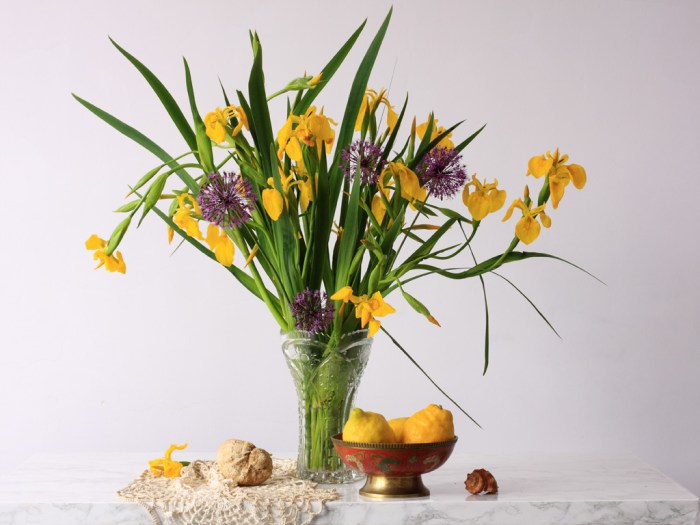
Venturing beyond the familiar confines of our comfort zones unveils a realm of transformative experiences that ignite resilience, adaptability, and a spirit of adventure within us. Wild environments, with their inherent unpredictability and challenges, serve as potent catalysts for personal growth and empowerment.
Embracing the unknown fosters a mindset of curiosity and openness, encouraging us to question our preconceived notions and embrace new perspectives. It cultivates a sense of wonder and awe, reminding us of the vastness and complexity of the natural world and our place within it.
Resilience and Adaptability
Navigating the uncertainties of wild experiences requires resilience and adaptability. We learn to cope with unexpected situations, problem-solve creatively, and persevere through challenges. These experiences strengthen our inner resolve and equip us with the skills to handle adversity with greater confidence.
- Exposure to diverse environments, such as rugged terrain or unpredictable weather, tests our physical and mental limits, building resilience and endurance.
- Encounters with unfamiliar wildlife or unforeseen obstacles demand quick thinking and improvisation, fostering adaptability and resourcefulness.
- Overcoming fears and discomfort in wild settings enhances our self-belief and resilience, empowering us to face future challenges with greater confidence.
Spirit of Adventure
Wild experiences ignite a sense of adventure and exploration, inspiring us to push boundaries and seek new experiences. They remind us of the thrill of discovery and the joy of immersing ourselves in the wonders of the natural world.
- Venturing into uncharted territories fosters a sense of exploration and curiosity, driving us to seek new knowledge and perspectives.
- Confronting the challenges of wild environments cultivates a spirit of adventure and a desire to overcome obstacles in the pursuit of our goals.
- Experiencing the beauty and tranquility of nature inspires a sense of awe and wonder, reminding us of the interconnectedness of all living things.
The Power of Nature
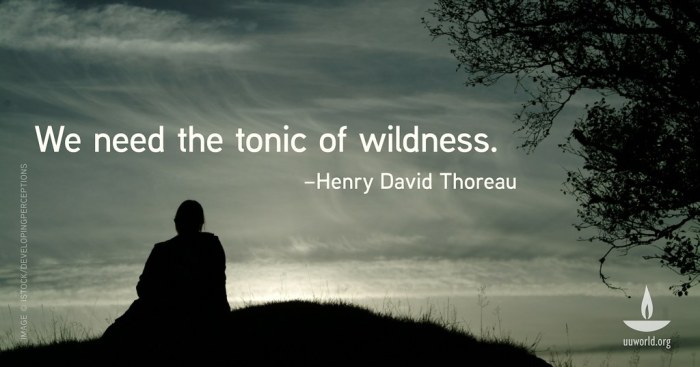
Nature, with its untamed beauty and serene landscapes, has an inherent power to rejuvenate and transform our well-being. Spending time in natural environments has been scientifically proven to reduce stress, enhance creativity, and promote healing.
Studies have shown that exposure to nature can lower levels of the stress hormone cortisol, resulting in a calming effect on the mind and body. Immersed in the tranquility of nature, our sympathetic nervous system, responsible for our fight-or-flight response, slows down, allowing us to relax and de-stress.
Enhanced Creativity
The restorative qualities of nature extend beyond stress reduction. Studies have also revealed that exposure to natural environments can stimulate creativity. The open spaces and diverse sensory experiences in nature foster a sense of awe and wonder, which can trigger new ideas and perspectives.
When we connect with nature, our minds become more receptive to novel thoughts and solutions. The absence of distractions and the calming effect of nature allow our imaginations to wander, leading to increased creative output.
Healing Properties
In addition to its restorative and creative benefits, nature has also been shown to have healing properties. Research has indicated that spending time in natural environments can improve immune function, reduce inflammation, and promote faster recovery from illnesses.
The fresh air, sunlight, and negative ions found in natural settings can have a positive impact on our physical health. Exposure to nature has been linked to improved cardiovascular health, reduced risk of chronic diseases, and enhanced overall well-being.
Preserving Wild Spaces
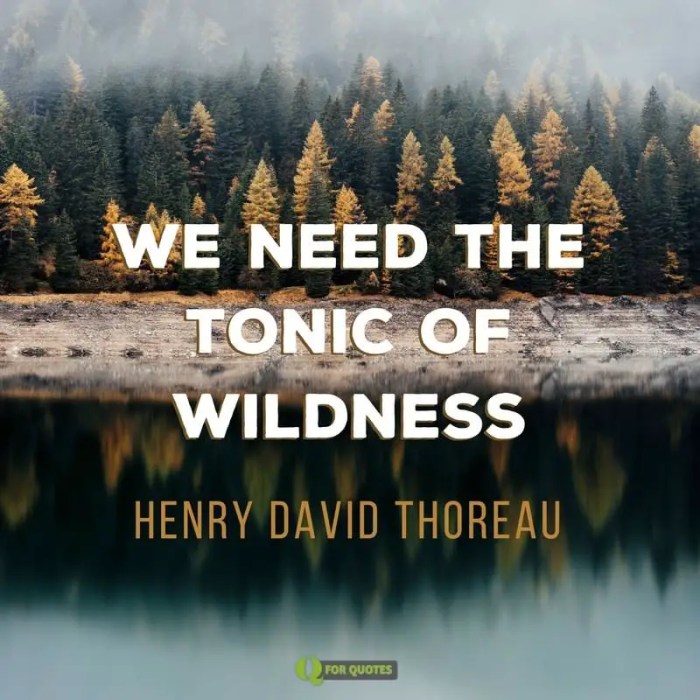
Wild spaces are crucial for the ecological balance of our planet. They provide habitats for countless species, regulate climate, and purify water and air. However, human activities such as deforestation, urbanization, and pollution are rapidly encroaching on these vital areas.
Conservation efforts are essential to ensure the availability of wild areas for future generations. These efforts include establishing protected areas, promoting sustainable land use practices, and educating the public about the importance of preserving wild spaces.
Role of Conservation Efforts
- Establishing Protected Areas:National parks, wildlife sanctuaries, and other protected areas provide safe havens for wildlife and help preserve critical habitats.
- Promoting Sustainable Land Use Practices:Encouraging sustainable forestry, agriculture, and grazing practices can reduce the impact of human activities on wild spaces.
- Educating the Public:Raising awareness about the ecological importance of wild spaces and the threats they face can inspire people to support conservation efforts.
Wildness as a Source of Inspiration
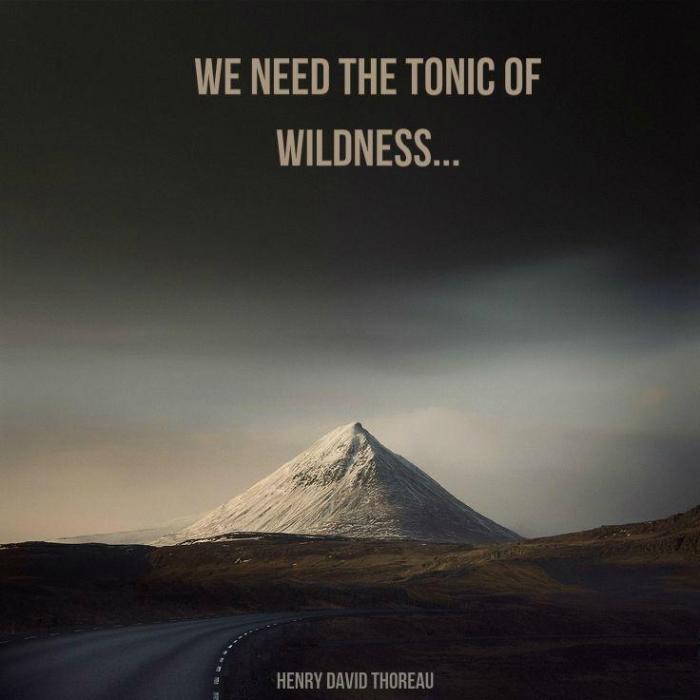
Wildness has captivated the human imagination for centuries, inspiring countless works of art, literature, and music. The raw beauty and untamed power of nature ignite creativity and spark the imagination, offering a profound source of inspiration for artists, writers, and musicians.
Nature’s Symphony
- The harmonious sounds of birdsong and the rhythmic crash of waves have inspired composers like Beethoven and Debussy to create musical masterpieces.
- The vibrant colors and delicate textures of flowers have served as muse for painters like Monet and Van Gogh, capturing the ephemeral beauty of the natural world.
Unveiling the Unknown
- The vastness and mystery of wilderness have fueled the imaginations of writers like Thoreau and Muir, leading to profound insights into the human condition and the interconnectedness of life.
- The untamed landscapes and rugged terrain have provided settings for countless adventure stories and epic poems, captivating readers with tales of courage, exploration, and the allure of the unknown.
Common Queries
What is the essence of wildness?
Wildness represents the untamed, natural world, free from human influence. It encompasses the beauty and power of nature, offering a respite from the stresses of modern life.
How can I incorporate wildness into my daily life?
Find pockets of nature in urban areas, such as parks, green spaces, or nearby trails. Spend time outdoors, engage with the natural world, and observe the beauty and diversity of life.
Why is it important to embrace the unknown?
Stepping outside our comfort zones helps us grow, adapt, and develop resilience. Wild experiences foster a sense of adventure and encourage us to embrace the unexpected.